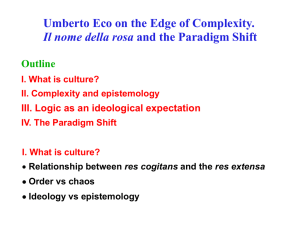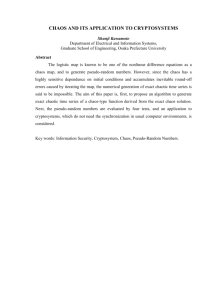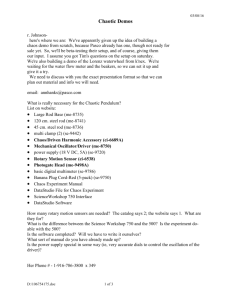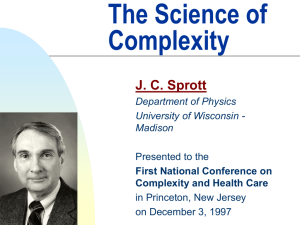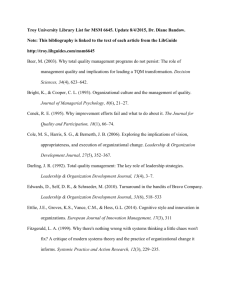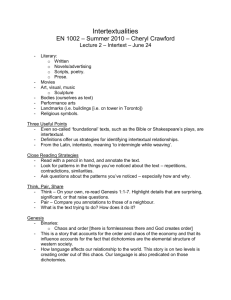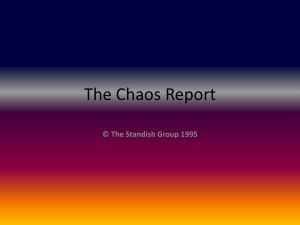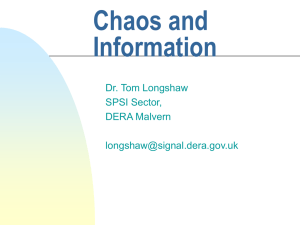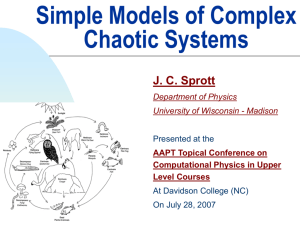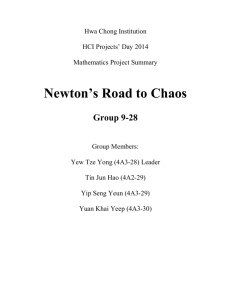Chaos Theory
advertisement
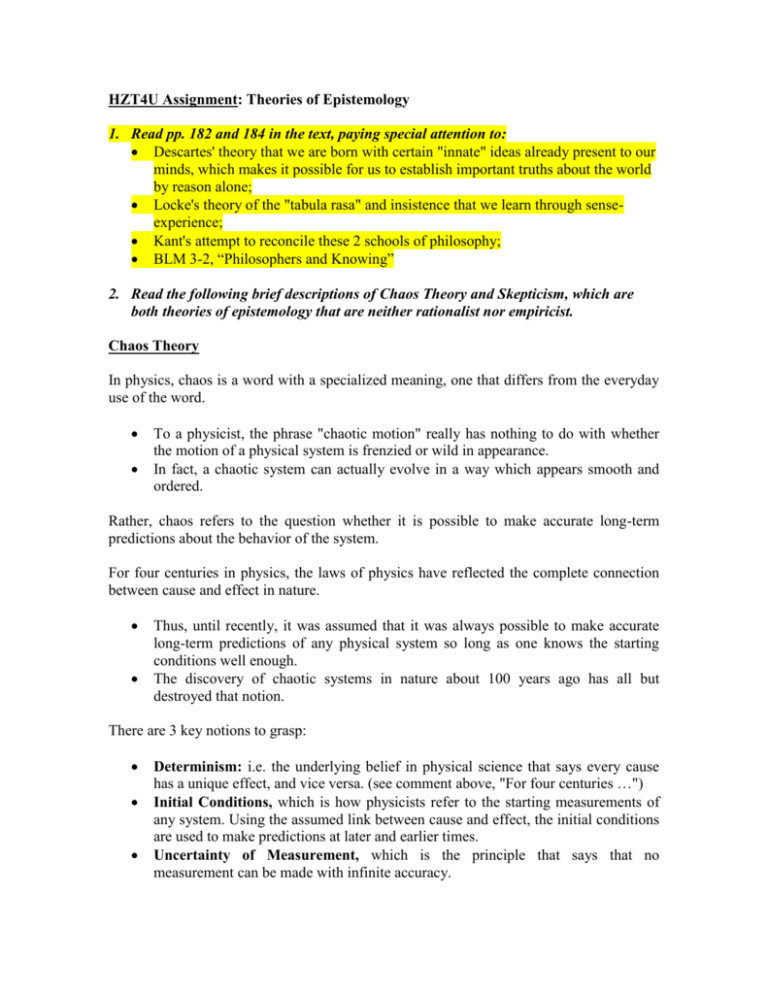
HZT4U Assignment: Theories of Epistemology 1. Read pp. 182 and 184 in the text, paying special attention to: Descartes' theory that we are born with certain "innate" ideas already present to our minds, which makes it possible for us to establish important truths about the world by reason alone; Locke's theory of the "tabula rasa" and insistence that we learn through senseexperience; Kant's attempt to reconcile these 2 schools of philosophy; BLM 3-2, “Philosophers and Knowing” 2. Read the following brief descriptions of Chaos Theory and Skepticism, which are both theories of epistemology that are neither rationalist nor empiricist. Chaos Theory In physics, chaos is a word with a specialized meaning, one that differs from the everyday use of the word. To a physicist, the phrase "chaotic motion" really has nothing to do with whether the motion of a physical system is frenzied or wild in appearance. In fact, a chaotic system can actually evolve in a way which appears smooth and ordered. Rather, chaos refers to the question whether it is possible to make accurate long-term predictions about the behavior of the system. For four centuries in physics, the laws of physics have reflected the complete connection between cause and effect in nature. Thus, until recently, it was assumed that it was always possible to make accurate long-term predictions of any physical system so long as one knows the starting conditions well enough. The discovery of chaotic systems in nature about 100 years ago has all but destroyed that notion. There are 3 key notions to grasp: Determinism: i.e. the underlying belief in physical science that says every cause has a unique effect, and vice versa. (see comment above, "For four centuries …") Initial Conditions, which is how physicists refer to the starting measurements of any system. Using the assumed link between cause and effect, the initial conditions are used to make predictions at later and earlier times. Uncertainty of Measurement, which is the principle that says that no measurement can be made with infinite accuracy. The basic point of chaos theory is that, because of our inability to measure things with infinite accuracy, we cannot know the initial conditions of any system exactly enough to predict that the system will unfold in a pre-determined way. This means that every system gives rise to "Dynamical Instabilities," which to most physicists is a term synonymous with Chaos. Further, if this is true of "mere" mechanical interactions between physical objects, how much more might it be true of the interactions between sentient beings? (Um, that would be YOU PEOPLE, in case you're wondering what a "sentient being" is.) Skepticism This is the view that questions whether valid or reliable knowledge is ever attainable by a human being. Some skeptics believe that some or all human knowledge is impossible: humans either do not or cannot attain knowledge. Other skeptics stated that they did not know whether knowledge was possible; they suspended judgment on the issue. Since even our best methods for learning about the world sometimes fall short of perfect certainty, skeptics argue, it is better to suspend belief than to rely on the dubitable products of reason. Some of the common examples used by skeptics are the illusions and deceptions of our senses. Others point to the complexity of any experience and ask how you can know what is the essence or real nature of the things you are experiencing. See what the text has to say about it on pp. 199-200. 3. In groups of four to six, discuss which approach to epistemology you prefer, and why. Develop a graphic organizer in a style of your choosing to compare/contrast these various theories of epistemology. (This chart will be used for marking! Make sure everyone's name appears on it.) Group Names: _________________________________________________ Category Level One Level Two Level Three Level Four Communication * limited clarity of ideas expressed * limited use of vocabulary * some clarity of ideas expressed * some use of vocabulary * clear ideas expressed * accurate use of vocabulary Application * limited explanation or illustration of epistmological concepts in the activity * some explanation or illustration of epistmological concepts in the activity * clear explanation or illustration of epistmological concepts in the activity * clarity & insight in ideas expressed * vocabulary used with accuracy & insight * outstanding explanation or illustration of epistmological concepts in the activity Comments:
